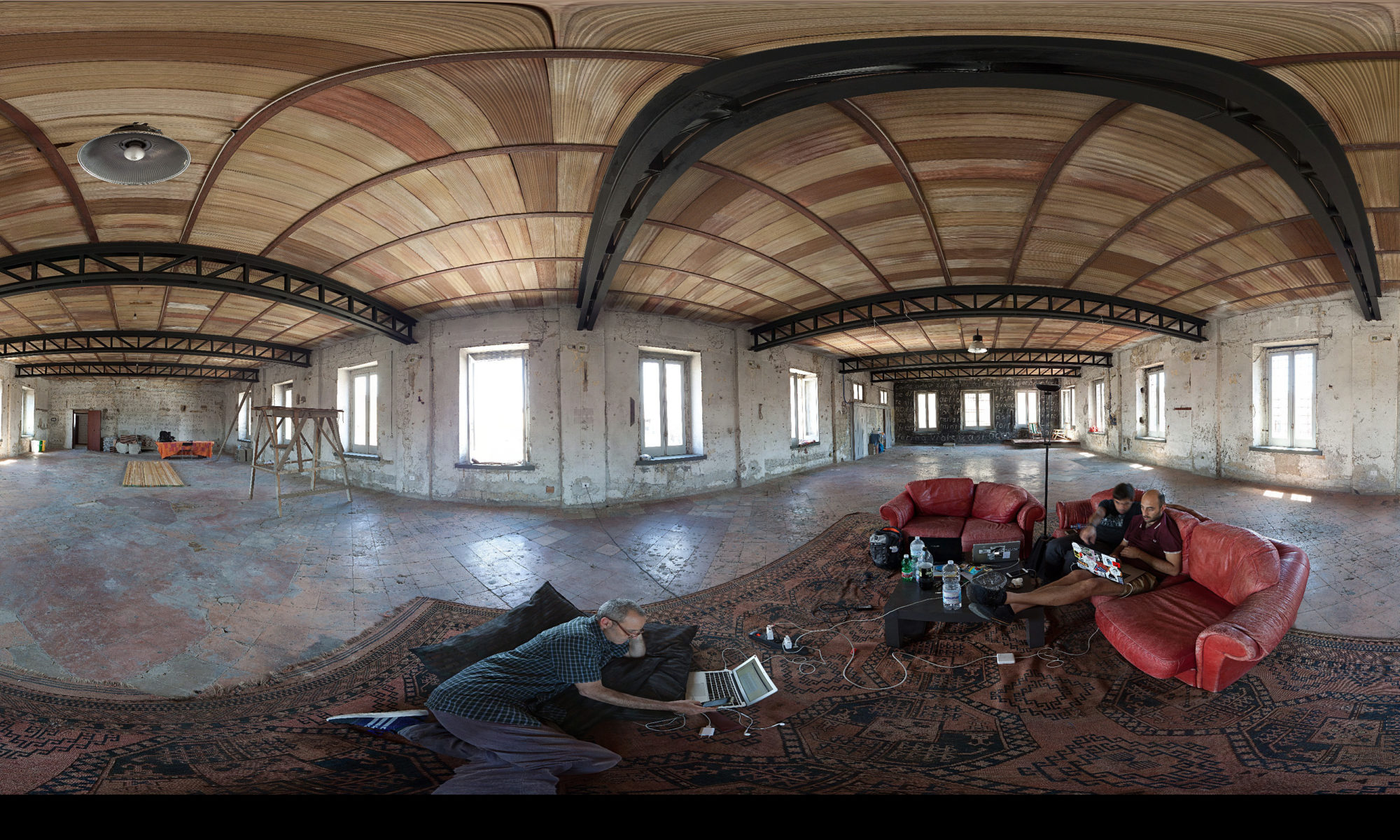Roberto Germano (Promete Srl) – Energy from Water and Environmental Heat in the New Urban Landscape: the Oxhydroelectric Effect – 2024 July 3
This talk is devoted to a revolutionary discovery and its impact on cities thanks to the deep physical nature of Water. The speaker is Roberto Germano, a physicist specialized in quantum mechanics and the physics of water. He discovered the Oxhydroelectric Effect (https://en.wikipedia.org/wiki/Oxhydroelectric_effect) and patented a system to leverage it in order to produce electricity from environmental infrared energy. He is the CEO of Promete (www.promete.it), a technology transfer spin off company of the Italian National Research Council (since 1997), and the CTO of Oxhy (www.oxhy.it) a young Innovative Start up company devoted to making the oxhydroelectric-based production of clean and unlimited energy available on a mass scale. Roberto is also a “cultural-political” activist. He has published several papers on experimental physics, some patents, and wrote dissemination books such as Fusione Fredda [Cold Fusion] (2000); AQUA (2006), and Il Trasferimento Tecnologico [Technology Transfer] (2010).
Mohamed Adel Dessouki (Arab Academy for Science and Technology) – Save Alex: Grassroots mobilization for urban and architectural conservation in Alexandria – 2024 July 2
The fear of losing the city of Alexandria, Egypt, is deeply rooted in the hearts and minds of its residents and admirers around the world. The city was destroyed and rebuilt several times throughout its history and has faced many threats, both natural and man-made and remains a city that is vulnerable to loss. This lecture focuses on the loss of Alexandria’s built heritage and the efforts of activists and grassroots groups who tried to save this heritage in the past decade.
Stefano Serafini (International Society of Biourbanism)- Biourbanism of Water: Mediterranean Urban Codes and the Commons – 2024 July 2
The use of water in Mediterranean urban settlements follows common patterns and codes whose origin has been studied by Prof. Besim Hakim. This presentation addresses this topic advocating its possible restoration.
Marjetica Potrč (artist and architect) – The Personhood of a River – 2024 July 1
The 2021 referendum on water rights in Slovenia pointed to a shift in attitudes towards nature in contemporary culture: from a society of owners to a society of caretakers. In the eyes of a caretaker, a river is not an object but a subject. As a subject, its rights are recognized by law, which, no longer human-centered, acknowledges the agency of nature. Who, then, is a river as a person, and what is our dialogue with it? Can a river own itself? What does a river want? In 2022 I explored these issues with the Wiradjuri elder Ray Woods, a caretaker of the Lachlan River and a guardian of the river’s rights in New South Wales in Australia, as well as currently with the community-based initiatives in Bogota in Colombia.
Patricia Mejías Moreno– Water and peri-urban agriculture – 2024 July 1
The presentation will highlight the crucial importance of sustainable water resources management in peri- urban environments to ensure food security and agricultural development. The specific challenges facing peri- urban farmers and cities in terms of access to water, water quality and competition for scarce water resources will be presented. Furthermore, innovative strategies will be explored to maximize the efficient use of water in agricultural production in peri-urban areas to improve food access to cities, in a context of climate change and urban growth.
Pablo Castro and Jennifer Lee – H2O (LIFEFORMS) – 2024 June 28
While not all of the projects are about water, they all propose an alternative attitude towards the natural. If we can consider life in particular as standing-in for nature in general, we can draw an operative distinction between objects and lifeforms. The latter could be understood as a presence sometimes endowed with some degree of sentience but, most importantly, with metabolic functions that, while not formally fixed, respond to the dictates of an evolutionary process darkly unfolding in time beyond our direct control, there are limits to the way in which living things can be treated. While an object can presumably be manipulated with certain abandon, lifeforms must instead be handled with care.
Alberto Cerezo Narvàez – Nature-Based Solutions for Climatic Control of Urban Spaces – 2024 June 27
Urban space has become a hostile territory for citizens due to unsustainable and non-resilient urban regeneration patterns, which have led to an exponential increase in the use of private transport, and the emergence of the urban heat island effect. At the rural level, the fragmentation, depletion and destruction of habitats, loss of biodiversity and degradation of ecosystems stand out. All these phenomena fuel global warming, which aggravates the intensity of the urban heat island and leads to increasingly intense and frequent heat waves, droughts and floods. If to the impact of global warming and environmental degradation is added the health pandemic, the importance today of creating thermally comfortable outdoor environments is inescapable and unavoidable. The Termotecnia Research Group is continuing along the path it began at the 1992 Seville Universal Exposition (EXPO’92). The more than 30 years since then have allowed the incorporation of innovative components and strategies (such as variable solar control, night sky dissipation, ground dissipation with night evaporative regeneration, thermal storage in subway channels or solar electricity production), and the integration of ICT for optimal operation of the technical systems (in aspects such as remote sensing, presence control, user preferences, climate prediction, etc.). The research projects Cartuja Qanat (Recovering the Street Life in a Climate Changing World) and LIFE Watercool (Water Efficient Systemic Concept for the Climate Change Adaptation in Urban Areas) represent a pioneering experience in outdoor facilities conditioned by nature-based techniques, with zero energy consumption, zero emissions and zero annual water consumption. Throughout the lecture, the main components and solutions used will be mentioned, identifying the optimal passive and active adaptation measures to improve the comfort of the occupants in outdoor spaces. The results will help urban planners, engineers, architects and landscape architects to design thermally comfortable open spaces.
Renato Papale (Unione Geotermica Italiana) – Renewable Heating & Cooling (RHC) in an urban context: assessment of feasibility on historic buildings – the case of the Lanificio Borbonico of Naples. – 2024 June 27
The climate crisis finds a solution in the “decarbonisation” of energy consumption, i.e. in the replacement of fossil fuels, especially for thermal uses in buildings, which are currently responsible for almost 50% of climate- altering gas emissions. The energy requalification of buildings can therefore no longer be limited, as in the past, to a simple increase in efficiency, but must go towards the total replacement of heating and domestic hot water (DHW) production systems. In our Historic Centers, the real challenge is not technological, but becomes that of combining this need with the need to respect the historic building. A possible approach is discussed taking the Lanificio complex as an example.
Vera Corbelli (Segretario Generale dell’Autorità di Bacino Distrettuale dell’Appennino Meridionale) – Water Resource Governance through District planning – 2024 June 26
The Southern Apennines District Basin Authority – in the European and National regulatory configuration – carries out planning and programming activities at the Hydrographic District scale in relation to the defence, protection, use and sustainable management of “soil and water resources”, through the Plan of the District Basin and the related Management Plans, which represent, the regulatory and technical-operational cognitive tools through which the actions and rules of use aimed at the conservation, defense and valorisation of the soil are planned and programmed and the correct use and management of water, based on the physical and environmental characteristics of the territory concerned, with a multi-scalar, multidisciplinary, systemic and holistic approach, aimed at ensuring “integrated governance”. Among the Plans mentioned, the “Water Management Plan” takes on particular importance, which integrates and is in osmosis with the other Planning and Programming Tools at various levels and scales (Plans, Sub- plans and Specific Projects) in area of the Southern Apennines District. The “Water Asset” constitutes a priority element of our entire ecosystem, and therefore in the elaboration of the Plan the objectives are pursued: to achieve a good qualitative and quantitative status of the water, to ensure its uses (drinking, irrigation, industrial), to protect the environmental/cultural heritage, to evaluate the pressures and impacts, to analyze and evaluate the economic structures, in order to arrive at measures to guarantee social, environmental and economic sustainability.
Common Views (Dan Faberoff and David Behar Peraia) – Environmental Reconciliation: Water as an Agent for Change – 2024 June 26
Common Views explore the relationship between communities in the context of their relationship to their environment, working in conflictual settings. Water, as a vital resource for survival and wellbeing, serves as an invaluable medium for reflecting on and addressing existing power relationships and structural discrimination, injustice and oppression, as well as a critical element for promoting social-ecological connection, and for conceiving alternative visions for transformation. In these times of rapidly developing climate and water crises, and increasing socio-political tensions, the issue of our relationship to water in this context becomes ever more crucial. Common Views present their insights from years of exploring water as an agent for change, working in a range of cultural and geographical contexts, including their work with Bedouin communities under pressure in the Eastern Negev desert, the issue of displacement and immigration in Eastern Europe, and European urban and rural communities in conflict with their environment.
PRAUD ARCHITECTURE (Dong Woo) – What remains after all by – 2024 June 25
The contemporary project has been trying to answer the postmodern question of how to move beyond modernism through a thread of architectural styles that tried to respond to deficiencies from the modern promise and contextual changes. Yet, the question remains, should this ongoing struggle to move beyond modernism be a stylistic battle? Has the present architectural practice ever left the modernist tendencies, and is there a structure for a contemporary language in architecture? In the face of the rapid transformations of Seoul’s built environment, Dongwoo poses a simple question: “What remains after all as a built form?” In Seoul, these transformations are often propelled by a series of accessories attached to buildings. These accessories, mostly applied by users, are more temporal, lighter, and more flexible than elements of architecture and define/or change functions of the building. So, if we acknowledge that the use of architecture can change at any time in the near future, what then is the role of an architect?
Kyong Park (University of California, San Diego) – Against Progress? Looking Backward? – 2024 June 25
What if I say that we have been fooling ourselves by pretending that the climate crisis is about the environment and not about us? What if I claim that our existential destiny began with the rise and domination of Western and Christian cultures since 1492? What if I argue that our doctrine of Progress that stood on the idea of liberalism and enlightenment is our second exit from the Garden of Eden, how we began to separate ourselves from nature to claim it as our resource, exclusively. What if I debunk that the advancement in science and technologies toward material prosperity would bring us happiness? In respect to “2000-1887,” the subtitled of Edward Bellamy “Looking Backward” published in 1888, this lecture would contextualize the purpose and ambition of the Cool City Design Lab by backtracking the evolution of water from Naples and 2024. In conjunction with my critique of the Faustian economy of unlimited consumption, I will present pre- modern and ancient technology of water as a medium of cooling spaces and making communities.
Alexander Valentino (lan) – Water and Naples + intro to Santa Caterina a Formiello – 2024 June 24
If the Neapolitan territories have always hosted the human race, over the centuries Naples has been able to develop a close relationship with the waters that reach and pass through it. The creation of the sophisticated system of capture, supply and accumulation of local waters has trained its citizens and has allowed the city to maintain an important cultural position in the Mediterranean. Since the end of the 19th century this system has been tampered with and Neapolitan waters dispersed or converted into the sewage system. The lesson aims to give an account of the current situation of Neapolitan waters.
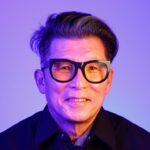
“2086: Together How?”
Kyong Park
Professor, University of California, San Diego
Curated by Soik Jung and Kyong Park, “2086: Together How?” is exhibition at the Korean Pavilion in the La Biennale di Venezia 2023 that brought together architects, community leaders and artists, the project asks how we might work together to endure current and future environmental crises until 2086 – the year when the global population is said to peak. The premise of “2086: Together How? is to interrogate our Faustian ideology of progress and how we have sought unlimited material pleasure through industrialization, westernization, and liberalism, and our reparations of the past colonial exploitations is the first step in our reconciliation with nature. Central to the exhibition is The Game of Together How, a quiz show that invites the viewers to make choices about social, political, and economic issues that impact the climate endgame. The exhibition asserts that not only will the environmental crisis force us to come up with a better ecocultural paradigm, more importantly, it will be our best and last chance to become a better humanity.
27.06.2023 – 18:00
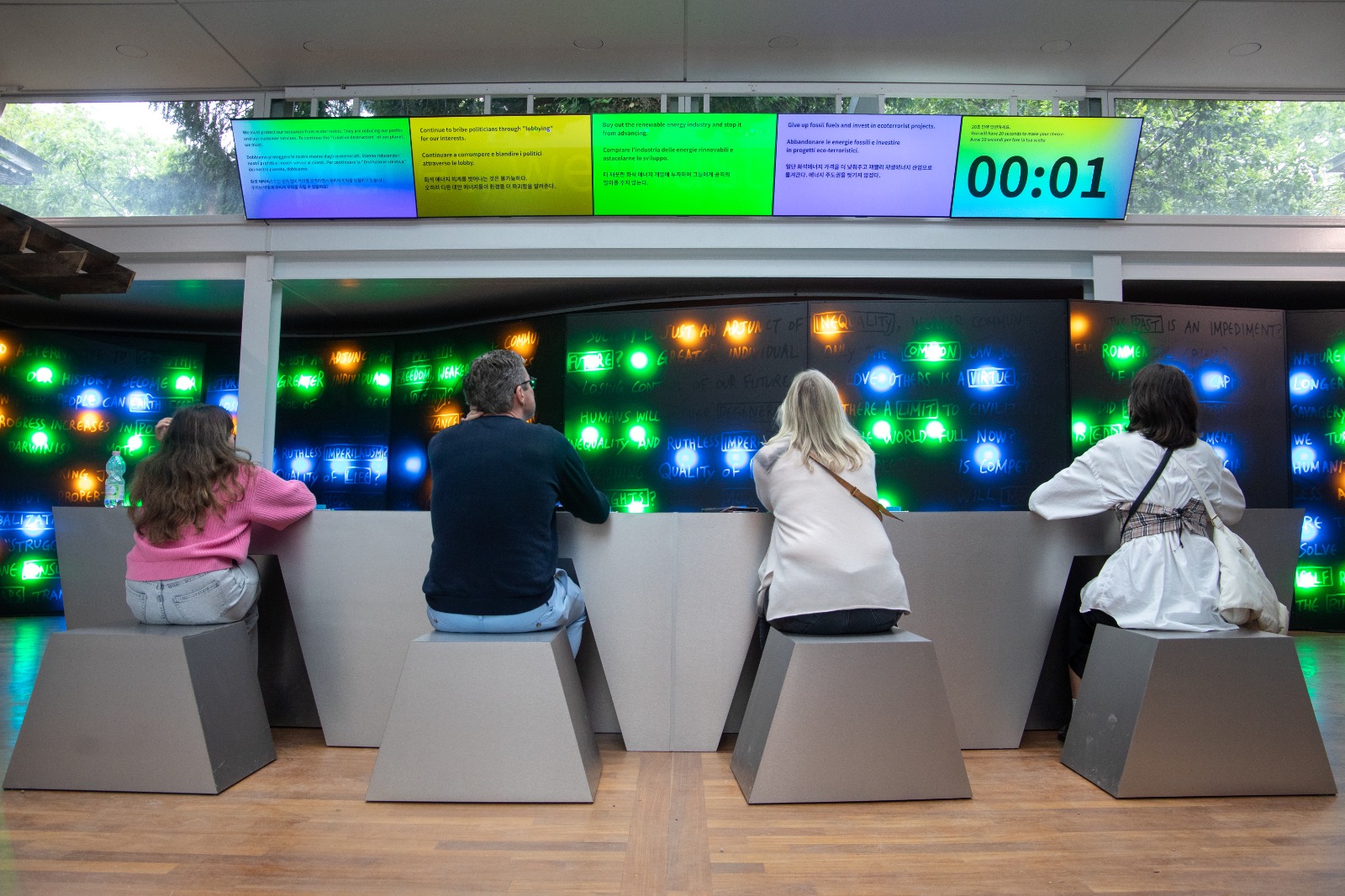
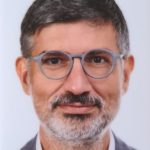 Ajmal Maiwandi – Chief Executive Officer at Aga Khan Trust for Culture Afghanistan
Ajmal Maiwandi – Chief Executive Officer at Aga Khan Trust for Culture Afghanistan
Preserving some of the most important historic public sites in Afghanistan, the work of the Aga Khan Trust for Culture has transformed derelict sites into thriving centers for public interaction, exchange and economic regeneration.
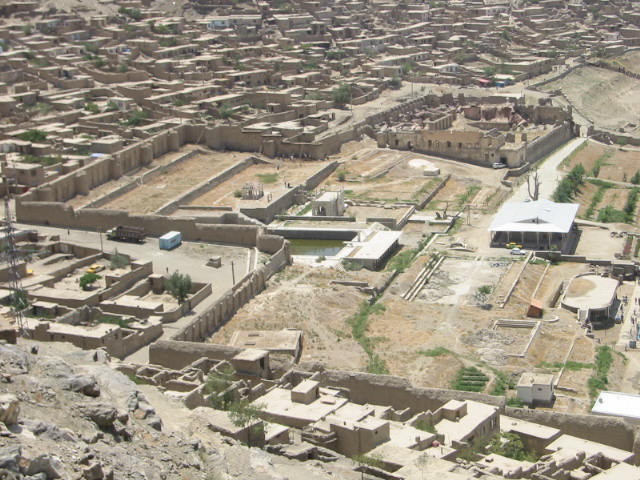
14 october 2021
CoolCity_Deep – Experimental studies on the internal dynamics of liquid water and consequences on its cooling capacity – 27.04.2020
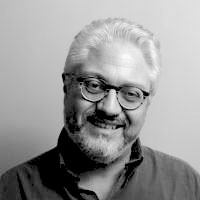 Roberto Germano, Physicist
Roberto Germano, Physicist
MSc in Physics from the “Federico II” University of Napoli. Founder and CEO of PROMETE Srl – CNR Spin off Company. Author of numerous articles of experimental physics in international scientific journals (h-index = 11), and of some patents for industrial inventions. Winner of the 2004 award “Roberto Marrama”, a competition in search of young entrepreneurial talents. Advisor of the magazine “Technology Transfer”, founder and member of the Scientific Committee of the Association NOI – Napoli Open Innovation, Former Technology Transfer expert in the issue of the Ministry of Economic Development. Author of the books “Cold Fusion, Modern history of inquisition and alchemy” (Bibliopolis, 2000, second ed. 2003) – Preface by Giuliano Preparata, and “AQUA, Electromagnetic Water and its amazing adventures” (Bibliopolis, 2006 ) – Preface by Emilio Del Giudice, co-author of “Technology Transfer” (Franco Angeli, 2010), and of the “Pocket Manual of Technology Transfer” (Il Denaro, 2010). He is member of the Scientific Committee of the IC-MAST – the International Conference on Materials and Applications for Sensors and Transducers, and Chairman of the Session: LECS, Low Energy Coherent Systems, and of the Scientific Committee of the Aquaphotomics International Symposium, and of the Scientific Committee of the AQUAPHOTOMICS International Symposium (Japan).
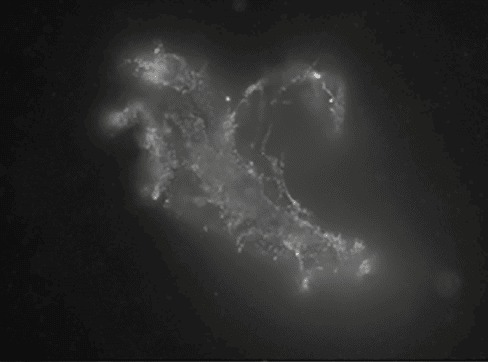
CoolCity_Deep – The Sebeto, between myth and history – Bruno Brillante – 13.04.2020
CoolCity_Deep opened with a lecture on the theme of the water of Naples par exellence, the topic that arouses an almost morbid curiosity in us, Bruno Brillante has illustrated the mythical / tragic Sebeto River. It is said that it rose in Volla and that the Maddalena Bridge surmounted it at the mouth. Paintings and texts have left indelible memories of this disappeared stream. The first Cool City detailed-studies-section has been organized as a trip out of town for Easter Monday, accompained by a passionate connoisseur of the pearls of Naples, in search of the most celebrated river in the history of Naples.

Christopher Thompson_AFAR – 21.02.2019 – Il Vuoto Proprio
Afar is a series of inter-related, multi-discipline arts projects. The works explore our changing relationship with the places we live and the natural world at large, with the hope of better understanding the deep feelings of separation and disconnect that seem so prevalent during this rapid and dramatic transformation of ‘home’. It is a project of listening, above all, in which the geographical reading of illustrative telling places is informed first and foremost by the voices of those who experience it. In turn, the works born from this process aim to encourage a wider, pluralistic conversation that allows the discussion to evolve. Film screenings, book presentations and installations are often therefore organised as participatory events, talks or seminars, so as to allow this ongoing listening process to flourish and indeed shape future pieces, while also converting those distances into connections. As such each piece acts as a kind of invitation, and asks: where might we meet?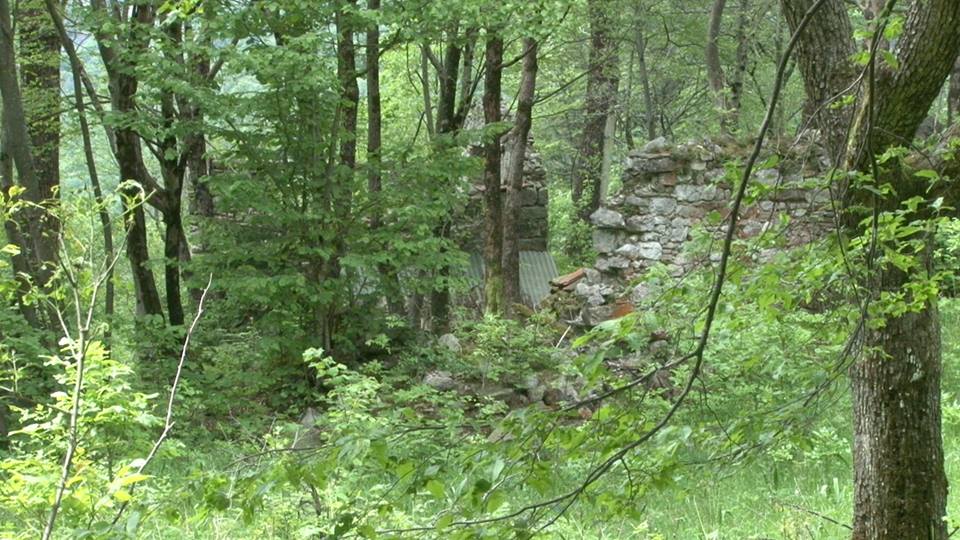
Christopher Thomson is a writer, photographer and filmmaker. His work concerns notions of home and the significance of place and landscape, often exploring the marginal spaces that give clues to our contemporary condition. His books include The New Wild: Life in the Abandoned Lands, Travels Through Absence and The Place Between. The film The New Wild premiered at various international festivals in 2017 and is now being distributed theatrically throughout Italy by Tucker film.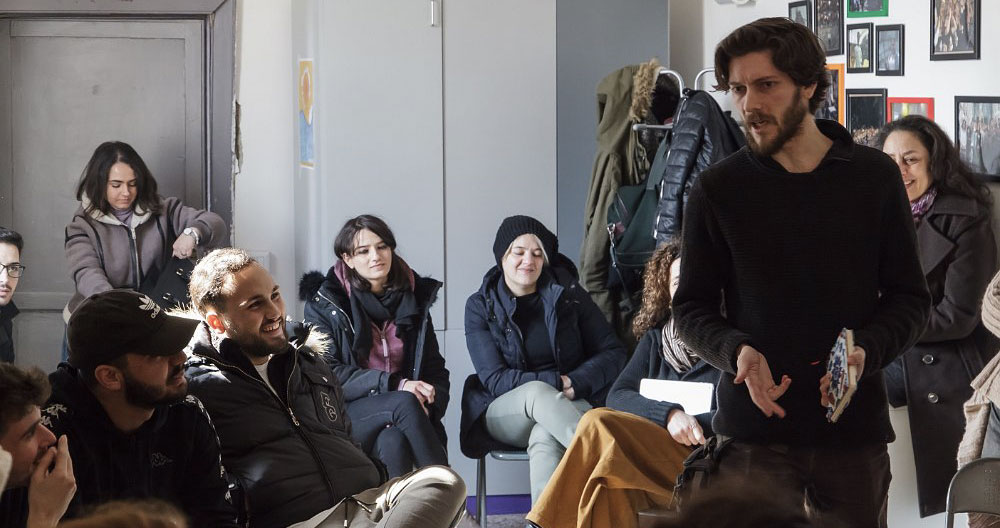
Le Scalze, Chiesa di San Giuseppe delle Scalze a Pontecorvo, Salita Pontecorvo, 65
Alessandra Cianelli_Sulla pratica della Meraviglia. Gli sguardi amorosi riaprono gli occhi dei dormienti chiusi dal passato insolente – 21.02.2019 – Il Vuoto Proprio
L’uso della Meraviglia e dello Spiazzamento, tecnologie proprie delle pratiche artistiche e del gioco infantile, consentono di entrare, percorrere, sperimentare e immaginare spazi e tempi, mentali e materiali, altrimenti (quasi) inaccessibili.
La pratica ininterrotta della provocazione e della rottura della forma, e la sua incessante quotidiana umile ri-costruzione sempre diversa, potrebbe provocare la procreazione di una tecnologia della conoscenza che si muove ad un altro livello, quello dell’attenzione ininterrotta al fare (pensiero, parola, segno, gesto, suono, respiro etc.):
forse così potrebbe emergere solo il necessario.
Le teorie potrebbero essere un altro aspetto delle pratiche e viceversa, praticamente la stessa cosa, in un’altra forma.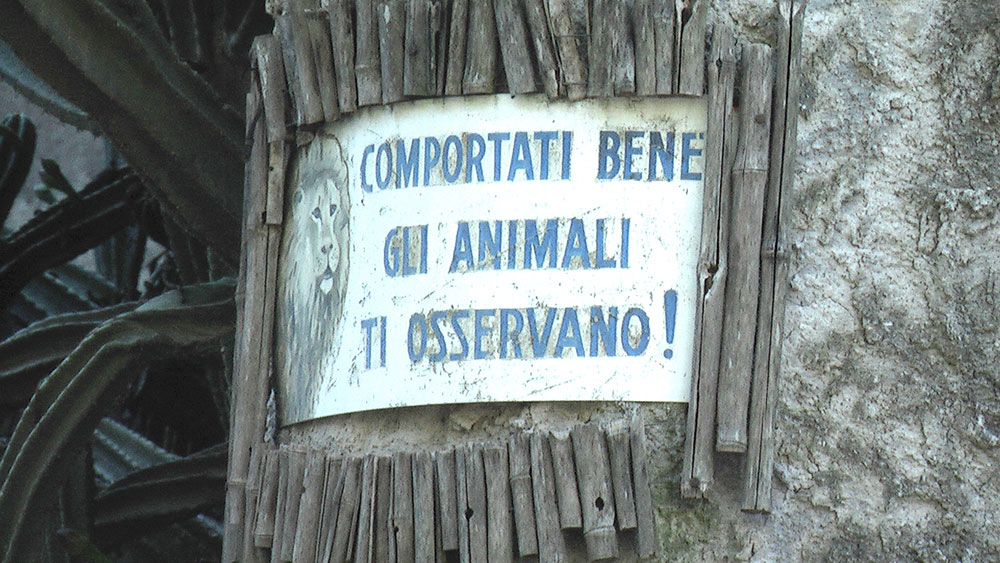
Alessandra Cianelli , ricercatrice&artista&praticante culturale, incrocia mezzi e discipline diverse (film-video, disegno, fotografia, performance, radio, arte sonora, scrittura). Rimozione, decostruzione e rimodulazione della memoria individuale e collettiva, fondamento di produzione culturale è il tema alla base di tutta la ricerca. Nel progetto Il paese delle terre d’Oltremare (2012-2019) focalizzato sull’ Archivio (coloniale) e sul complesso espositivo della Mostra d’Oltremare a Napoli, così come nell’investigazione sui processi di abbandono e/o scomparsa di comunità e culture rurali Dormitio Virginis/Wheat, seeds, culture, agriculture 2008-2018 e Biological Archive, Biographical Archive 2010-2017, la sua ricerca si sviluppa all’intersezione tra pratiche della memoria privata e collettiva. E’ membro del Centro Studi Postcoloniali e di Genere, Università l’Orientale. Ha fondato dal 2014 Dormire, residenza informale a Napoli per pensatori, ricercatori e visionari.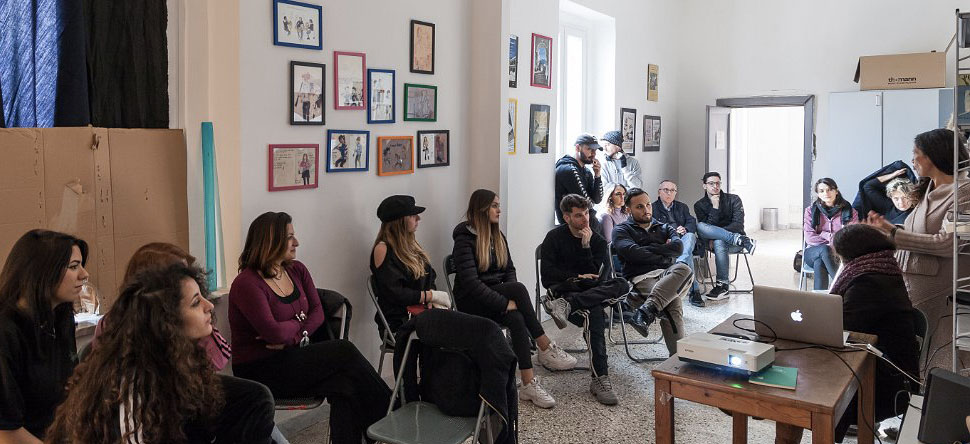
Le Scalze, Chiesa di San Giuseppe delle Scalze a Pontecorvo, Salita Pontecorvo, 65
Maria Thereza Alves_Wake for Berlin – 07.02.2019 – Il Vuoto Proprio
Plants sprout and grow unofficially throughout forgotten or empty spaces of cities. They can reflect a complexity of the city that may not be part of the official history of the city. Maria Thereza Alves will discuss her work, Wake, which is an investigation based on the botanical history of the possibilities of the arrival of seeds by animals, wind, people and any other accidents of history in a city.

Maria Thereza Alves, (Brazil, 1961) has participated in Manifesta in Palermo, the 32nd São Paulo Biennale, the Sharjah Biennale and dOCUMENTA (13) and a solo exhibit at MUAC in Mexico City and a survey exhibit at CAAC in Seville. Alves is the recipient of the Vera List Prize for Art and Politics 2016-2018. In 1988, Alves co-founded the Partido Verde of São Paulo in Brazil. In 1978 she made an official presentation of human rights abuses of the indigenous population of Brazil at the U.N. Human Rights Conference in Geneva. Her upcoming book, Recipes of Survival will be published by University of Texas Press. www.mariatherezaalves.org
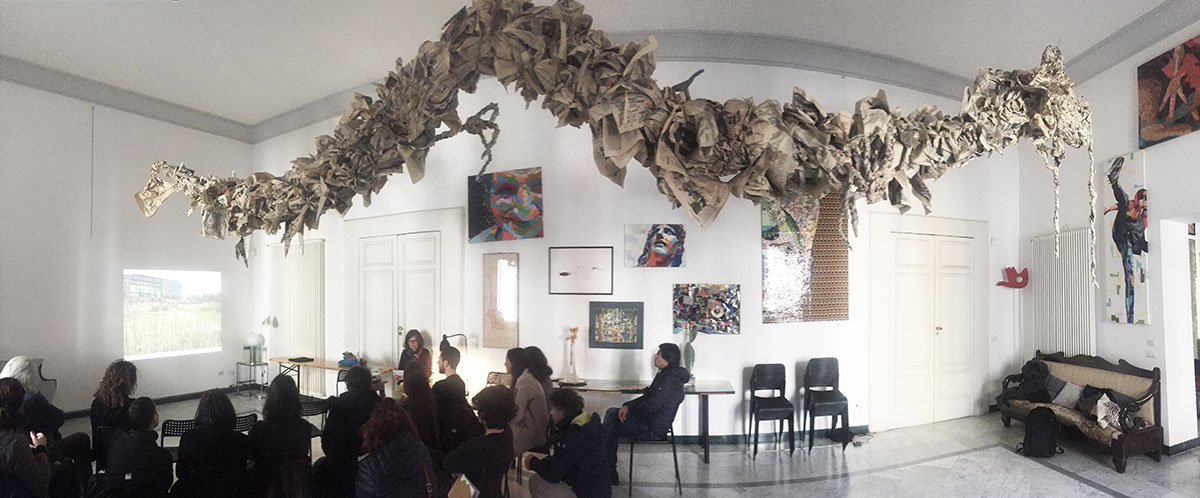 Brodo Associazione Culturale
Brodo Associazione Culturale
Palazzo dello Spagnolo, via Vergini 19, Napoli
Marcello Chiarenza_ Per una Poetica del Creato – Il Vuoto Proprio – 24.01.2019
[…] nel mio lavoro subisco l’attrazione ed il fascino dello spazio, gli orientali direbbero del vuoto, quell’oceano infinito delle possibilità, il luogo senza confini in cui aleggiano le voci interiori di ogni cosa […] 
Marcello Chiarenza, nato in Sicilia nel 1955, laureato in architettura presso il Politecnico di Milano, da decenni opera nel campo della figurazione simbolica e della drammaturgia della festa, nei diversi ruoli di scultore, pittore, scenografo, conduttore di laboratori, autore e regista teatrale.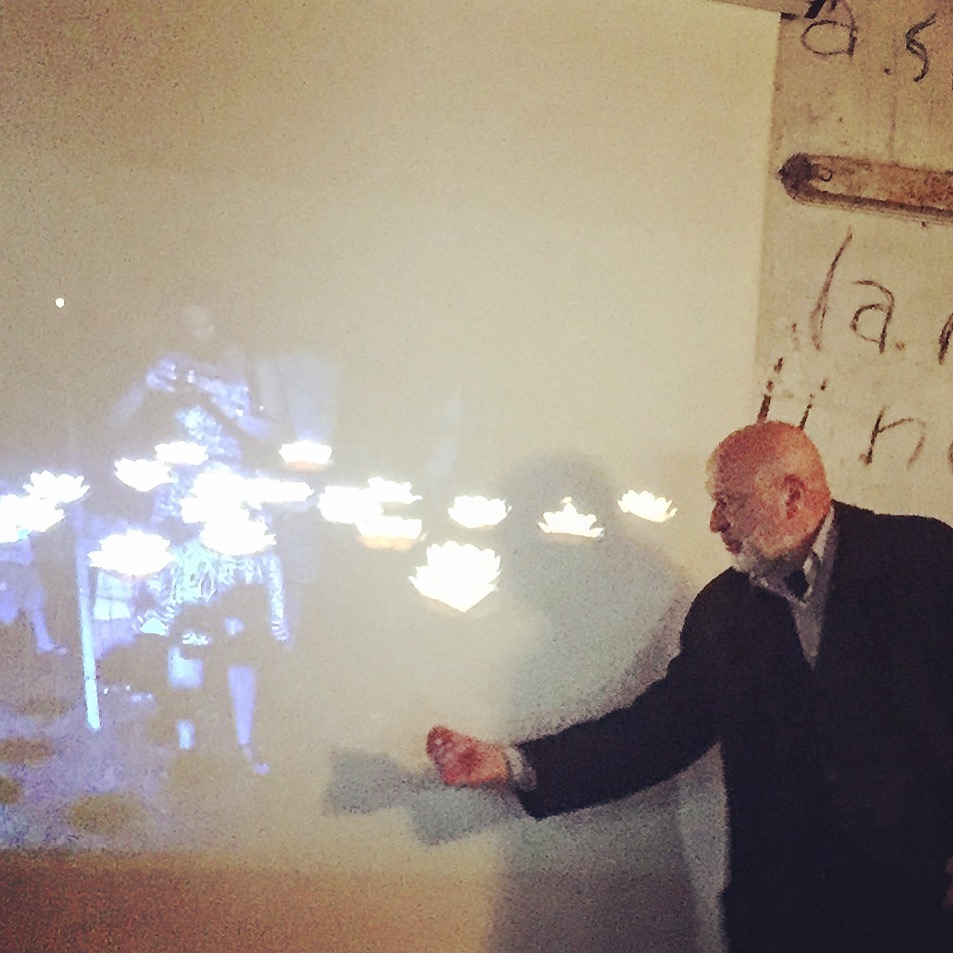
LAN – ex Lanificio, Piazza Enrico de Nicola, 46.
